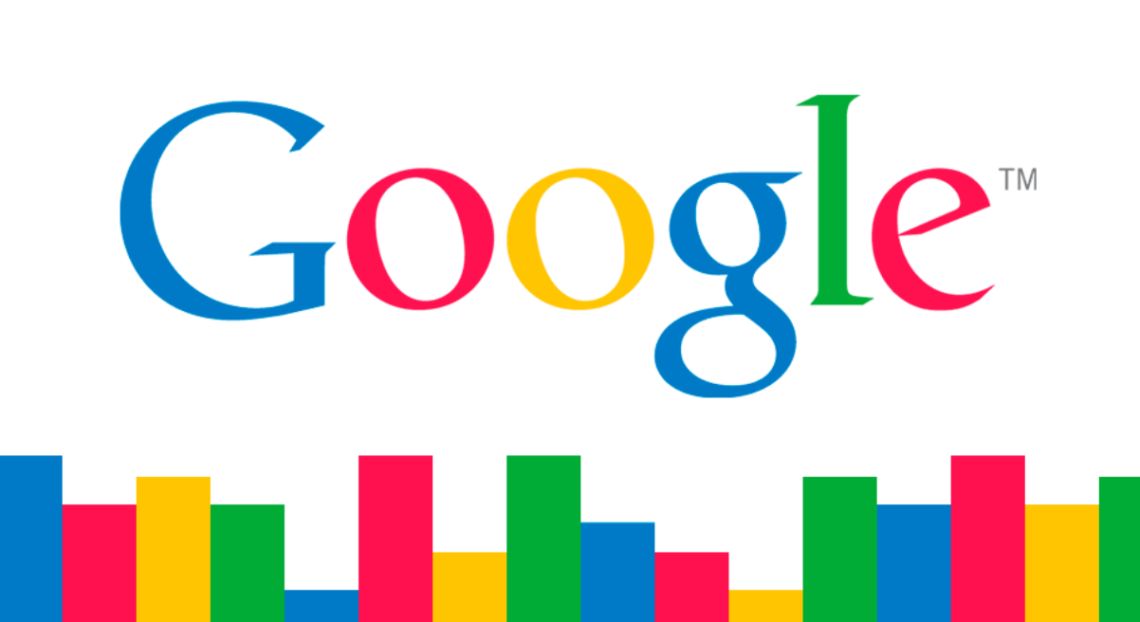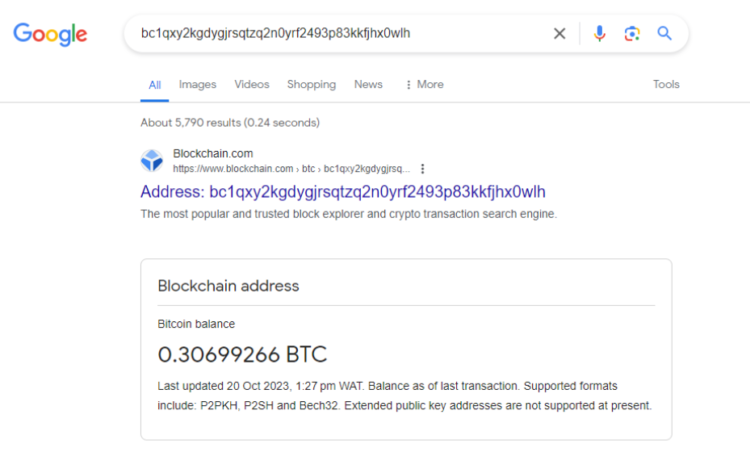Due to a recent Google feature, users can now search wallet balances across multiple blockchains, including Bitcoin, Arbitrum, Avalanche, Optimism, Polygon, and Fantom.

In response to a user entering the wallet address, search results exhibit the token balance by the network in conjunction with the time of the most recent update. Current balances and recent transactions are searchable in P2PKH, P2SH, and Bech32 Bitcoin address formats.
By integrating Bitcoin data into its search results, Google increases its visibility into on-chain activity by capitalizing on the substantial volume of daily searches.
Privacy advocates of Bitcoin have expressed apprehensions regarding the potential consequences of centralized data aggregation on privacy, whereas some applaud Google’s novel functionality as a stride towards widespread usage.

Following the introduction of Ethereum Name Service (ENS) domain search results, which enable users to check wallet balances using readable domain names such as “vitalik.eth” for Ethereum wallet addresses, Google has now introduced its most recent feature.
Google’s recent expansion of Ethereum wallet balance searches builds upon the company’s May 2023 debut of such functionality. Google incorporated a cryptocurrency functionality in 2022 that allowed certain Ethereum wallet addresses to have their Ether balances monitored by the Google search engine, thereby eliminating the necessity to visit Etherscan.
The incorporation of wallet searches signifies a change in stance from the tech behemoth. Following the United States’ January approval of spot Bitcoin exchange-traded fund (ETF) advertisements, Google has recently reversed its 2018 ban on Bitcoin-related advertisements and now permits such advertisements.
Search results include ETF products issued by reputable asset managers such as BlackRock.
Google and Coinbase partnered in October 2022 to enable consumers to pay for cloud services with cryptocurrencies.
Animated pandas moving in unison also served to commence a countdown to the Ethereum Merge event, which signifies the platform’s shift from proof-of-work (PoW) to proof-of-stake (PoS) in 2022.
Google Cloud and Web3 startup Orderly Network collaborated in 2023 to reduce the entry barrier into the decentralized world by developing user-centric developer tools for decentralized finance (DeFi).
The partnership’s objective was to tackle the primary obstacles that have plagued the DeFi ecosystem for an extended period: barriers to entry and security concerns.
